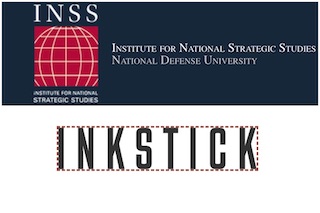NGO Statement: Improving Interactions between Civil Society and the OPCW
Mr. Chairman, Director-General, Distinguished Delegates, Civil Society Colleagues:
Mr. Chairman, Director-General, Distinguished Delegates, Civil Society Colleagues:
Mr. Chairman, Director-General, Distinguished Delegates, Civil Society Colleagues:
As advancements in artificial intelligence (AI) continue to transform the global technological landscape, civil society calls for proactive measures under the Chemical Weapons Convention (CWC) and the Organization for the Prohibition of Chemical Weapons (OPCW) to address emerging AI-driven threats. AI can improve verification, monitoring, and preventive actions within CWC mandates. However, it also poses unique risks in both civilian and military applications.

The Assad regime in Syria has strategically employed disinformation campaigns to obscure the truth about the chemical attacks it perpetrated, complicating humanitarian efforts and undermining public health.

Abstract: For the past five years, the Organisation for the Prohibition of Chemical Weapons has been the target of a concerted disinformation campaign. CBRN Perspectives & Analytics looks back on how an institution so central to global counterproliferation came under attack.

‘Poor Man’s Atomic Bomb’ Made of Dual-Use Biological, Chemical Material Replaces Nuclear Weapon for Non-State Actors, First Committee Told
Securing High-Containment Biological Labs Can Avert Next Pandemic
Chemical and biological weapons had become the best alternative to nuclear weapons for rogue States and non-State actors, the First Committee (Disarmament and International Security) heard today as it concluded its thematic debate on weapons of mass destruction and opened debate on conventional weapons.

The series "Arms Control in Today’s (Dis)information Environment," produced by scholars from the Institute for National Strategic Studies, National Defense University, encompasses a trio of papers that delve into the intricate relationship between disinformation and arms control. This scholarly work aims to foster a comprehensive dialogue on the potential influence of disinformation on the formulation and implementation of future arms control treaties and agreements.
Throughout the history of warfare attempts have been made to use chemical agents as weapons of war. Most attempts were unsuccessful until the growth of the chemical industry during the latter-half of the 19th century. By the outbreak of World War I in 1914, the first military chemical agents were already in the
arsenals of the major powers.
[CBW Magazine, July-Dec 2011]
Syria's state news agency, Sana reported that a explosion in Aleppo on July 26, killed around 15 soldiers and wounded 50 others. The Syrian officials had claimed that highly explosive products blew up due to an accidental fire at the facility and no sabotage was involved. They had reasoned that the increase in ambient temperatures up to 50 degrees Celsius caused an ammunition dump to explode, killing and wounding the soldiers.
Paxton ported to drupal by DropThemes.in